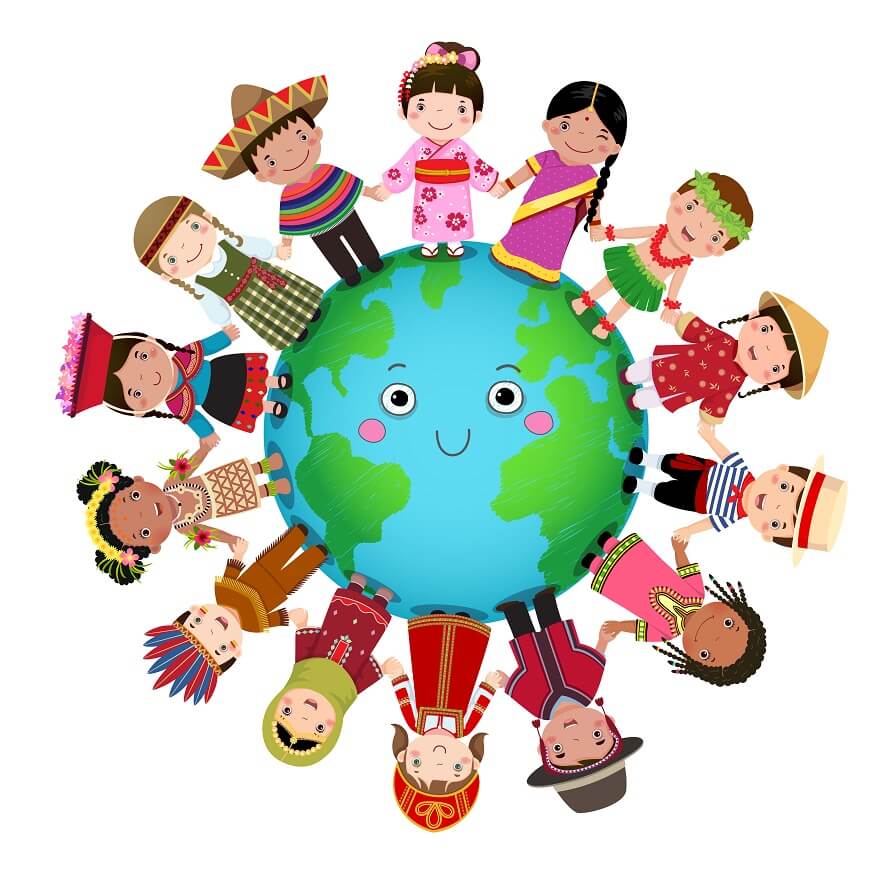Introduction
The world is a mosaic of cultures, languages, and traditions. Each individual comes with a unique blend of experiences that shape their identity. This diversity is a rich tapestry that we must embrace and celebrate. Cultural awareness is the key to understanding and appreciating this diversity, as well as fostering inclusivity in our increasingly interconnected global society.
In this blog post, we will delve into the significance of cultural awareness, its role in promoting diversity and inclusion, and how you can actively cultivate it in your daily life. Let’s embark on a journey of discovery and enlightenment, exploring the many facets of this vital topic.
The Significance of Cultural Awareness
Cultural awareness is the ability to recognize, respect, and appreciate the beliefs, values, customs, and traditions of other cultures. It goes beyond mere tolerance; it involves actively seeking to understand and empathize with people from diverse backgrounds. Here are some reasons why cultural awareness is so significant:
- Fostering Empathy and Understanding
Empathy is a cornerstone of meaningful human connections. Cultural awareness enhances our capacity for empathy, allowing us to put ourselves in someone else’s shoes and understand their experiences. When we understand where someone is coming from, it becomes easier to forge connections, resolve conflicts, and build meaningful relationships.
- Reducing Stereotypes and Prejudices
Stereotypes and prejudices often stem from ignorance and misunderstandings about other cultures. By educating ourselves about different cultures and interacting with people from various backgrounds, we can break down these stereotypes. Cultural awareness promotes a more inclusive and accepting society, where individuals are judged based on their character, not their ethnicity or origin.
- Facilitating Effective Communication
Effective communication is essential in every aspect of life, from personal relationships to the workplace. Cultural awareness aids in navigating potential communication barriers. It teaches us how to communicate respectfully and effectively with people from different cultural backgrounds. Whether you’re negotiating a business deal or making new friends, cultural awareness equips you with the tools to communicate across cultures.
- Enhancing Cultural Competence
Cultural competence refers to the ability to work effectively and respectfully with individuals from diverse backgrounds. In an increasingly globalized world, cultural competence is an invaluable skill. It is essential for educators, healthcare professionals, and anyone in a position of influence. By cultivating cultural awareness, you can develop this competence and contribute to a more equitable society.
The Role of Cultural Awareness in Diversity and Inclusion
Diversity and inclusion go hand in hand. Diversity encompasses the wide range of identities, backgrounds, and perspectives present in a community or organization. Inclusion, on the other hand, involves creating an environment where everyone, regardless of their background, feels valued and has an equal opportunity to thrive.
Cultural awareness plays a pivotal role in promoting both diversity and inclusion:
- Fostering a Welcoming Environment
When people from different cultures feel that their backgrounds are acknowledged and respected, they are more likely to feel welcomed and valued. This welcoming environment is the foundation of inclusion. By promoting cultural awareness, organizations and communities can create spaces where everyone feels at home.
- Leveraging Diverse Perspectives
Diverse teams and communities benefit from a wide range of perspectives and ideas. Cultural awareness allows individuals to share their unique viewpoints and experiences without fear of discrimination. When these diverse perspectives are embraced, innovation and creativity flourish.
- Mitigating Unconscious Bias
Unconscious bias can lead to discrimination and exclusion. Cultivating cultural awareness enables individuals to recognize and challenge their biases. It encourages us to question preconceived notions and embrace a more open-minded, inclusive approach.
- Strengthening Interpersonal Relationships
In both personal and professional settings, cultural awareness strengthens interpersonal relationships. It promotes respect and empathy, which are essential for collaboration and teamwork. When individuals feel valued for who they are, they are more likely to engage positively with others.
Cultivating Cultural Awareness
Now that we understand the significance of cultural awareness in fostering diversity and inclusion, let’s explore some practical steps to cultivate it in our lives:
- Self-Reflection
Start by examining your own beliefs and biases. Self-reflection is the first step towards becoming culturally aware. Ask yourself questions like:
What cultural biases or stereotypes do I hold?
How has my own cultural background shaped my worldview?
Am I open to learning about other cultures and perspectives?
By acknowledging your own biases, you can begin to address and challenge them.
- Learn About Different Cultures
Education is a powerful tool for building cultural awareness. Take the time to learn about the history, customs, and traditions of different cultures. Read books, watch documentaries, and attend cultural events. Engaging with cultural materials and experiences can broaden your perspective and deepen your understanding.
- Interact with Diverse Communities
Actively seek out opportunities to interact with people from diverse backgrounds. Join cultural clubs, attend community events, or travel to places with cultures different from your own. These interactions provide firsthand experiences and foster empathy.
- Listen and Ask Questions
When engaging with people from different cultures, be an active listener. Show genuine interest in their experiences and be willing to ask questions to gain insight. Avoid making assumptions or imposing your own beliefs on others.
- Practice Empathy
Empathy is a core component of cultural awareness. Put yourself in someone else’s shoes and try to understand their perspective. This practice can be particularly useful in resolving conflicts and building stronger relationships.
- Challenge Stereotypes
Be vigilant about challenging stereotypes and prejudices, both within yourself and in your surroundings. Encourage others to do the same. Remember that stereotypes often lead to discrimination, and combating them is an essential part of fostering inclusivity.
Conclusion
Cultural awareness is not a one-time achievement but an ongoing journey. In a world that’s becoming increasingly interconnected, it’s crucial to continuously educate ourselves about different cultures and actively engage with people from diverse backgrounds. By doing so, we can promote diversity and inclusion, reduce prejudices, and create a more harmonious and equitable world.
Cultivating cultural awareness is not only a personal responsibility but also a collective one. Whether you’re an individual, a part of an organization, or a member of a community, your commitment to cultural awareness can make a significant difference. Together, we can create a more inclusive, accepting, and diverse world that celebrates our shared humanity.





